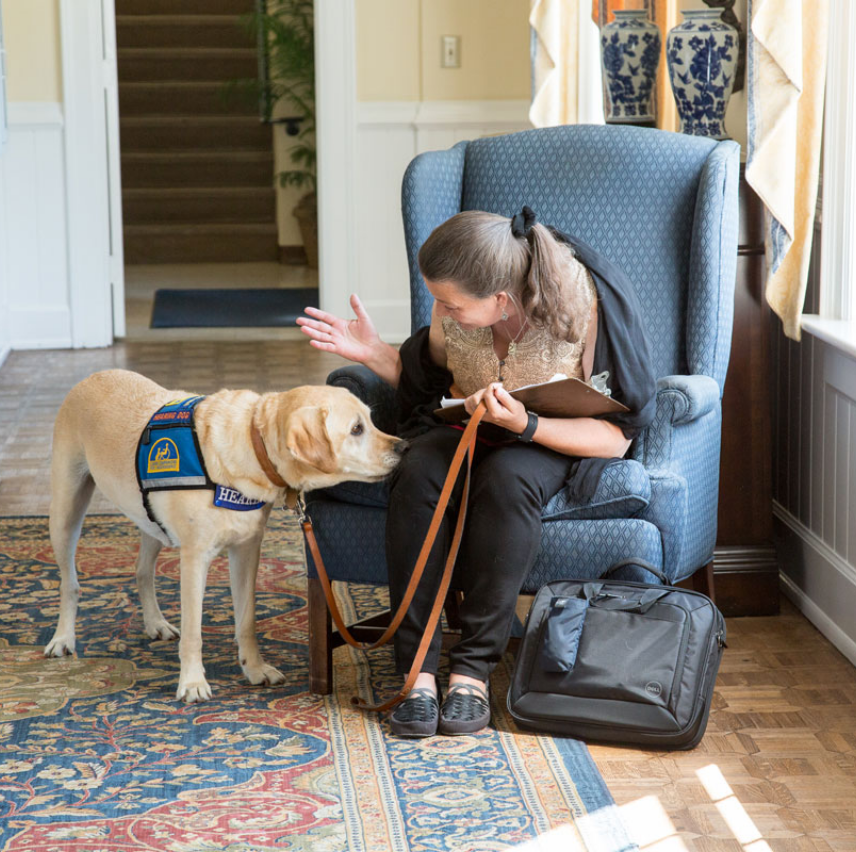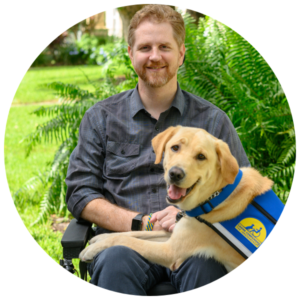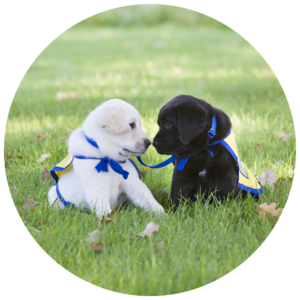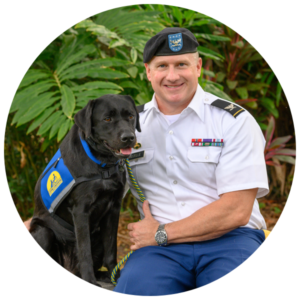
Event Info
2020 Tales & Tails Gala
Thank you for taking a journey with us with us on October 24 to THE WONDERFUL LAND OF PAWS to celebrate and support our mission to provide expertly trained assistance dogs, free of charge.
This was an extraordinary night of giving. We are grateful for some significant cash call challenge matching gifts that evening due to the generosity of:
Baumann Family Foundation
Robin & Paul Sanchez
DPH Fund
All of Canine Companions services are provided free of charge and your donations will help us fulfill the hopes and dreams of those people eagerly awaiting their perfect match so they can live life with independence and confidence.
SAVE THE DATE for the 25th annual Tales & Tails Gala
Saturday, October 16, 2021
Presenting Sponsor

Our Mission
Give A Dog A Job

Canine Companions for Independence® is the most highly acclaimed assistance dog organization in the United States and our unique and proven Team Training sets us apart by ensuring the match between dog and human is powerful and long lasting. Canine Companions has placed more than 5,400 assistance dogs since our founding in 1975. It’s your generous support that allows us to offer highly trained assistance dogs and a lifetime of support at absolutely no charge to people with disabilities.
Stories
Heart, Brains & Courage
Listen to the inspirational tales from graduate teams who have overcome incredible challenges, their stories are heartwarming and heroic. See our puppies and learn the science, technology and cutting edge research that make Canine Companions the leading provider of assistance dogs in the United States.

Joe Latimer with Helios
Graduate Team
In 2015, while on his bicycle in a crosswalk, Joe Latimer was struck by a car. The accident left him a quadriplegic. In August 2019, Joe was matched with Canine Companions assistance dog Helios. Joe— an award-winning artist and motion designer —is able to work from home creating educational videos for Full Sail University distance learning. Joe says, “I am able to velcro a stylus to my hand to navigate a computer. It gets dropped often and having Helios retrieve it—and do a simple basic task—is a real lifesaver. Helios is happy to help.”

Puppies
Cutting Edge Research
Duke University is welcoming Canine Companion puppies to its Canine Cognition Center. They’ll take part in a federal- funded study to assess the impact of different rearing strategies on the behavior and cognitive development of assistance dogs. “It’s tough to [become an assistance dog] and not everyone graduates,” says Prof. Brian Hare, of Duke’s Center of Cognitive Neuroscience and director of the Canine Cognition Center. Ultimately, the study seeks to identify those features linked to success. It will allow Canine Companions to make decisions earlier, to place more assistance dogs and to help more people with disabilities.

David Rozelle with Kylynn
Graduate Team
While leading a convoy across the Iraqi desert, Col. David Rozelle’s vehicle ran over a landmine. He lost his leg in the devastating explosion. In 2011, Col. Rozelle was teamed with his first Canine Companions Service Dog Domi, allowing him to better cope with his injury. After many years of faithful service, Domi passed. Once Col. Rozelle was ready, he was matched with service dog Kylynn. Together they continue moving forward with courage and independence.
Sponsorship Levels and Benefits
Thank You to Our 2020 Sponsors
Presenting Sponsor
Top Dog Sponsor

Best Friend Sponsors
Trish & Rick Walsh
Fonda & Don Cerenzio
Baumann Family Foundation
Nancy & Jeff Baumann
Coca Cola
Creative Services Donated By

Printing Donated By








